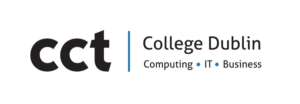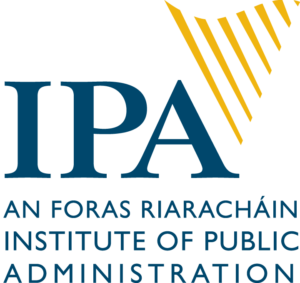Course Description
Higher Diploma in Science in Artificial Intelligence Applications
CCT College Dublin
Higher Diploma in AI Applications Course Overview
The Higher Diploma in Science in Artificial Intelligence Applications is a postgraduate course which aims to provide an opportunity for learners with a related degree outside the computing arena as well as those currently involved within the IT sphere to refocus and reskill for careers that require AI knowledge and skills. This programme is specifically designed for individuals with an evidenced numerate, technical and analytical ability who aspire to work, or are working, in roles that involve artificial intelligence. They will have the opportunity to continue to develop knowledge, skill and competence to remain competitive and employable in an ever-advancing sector.
| Course Code | CCT-HDSAIA |
| College Name | CCT College Dublin |
| Course Category | Artificial Intelligence, Computers & IT (Information Technology) |
| Course Type | Blended Learning - Mix of Classroom & Online |
| Course Qualification | Postgraduate Diploma |
| Course Location | Dublin, Ireland |
| Location Postcode | Dublin 2 |
| Course Start Date | 20th September 2021 |
| Course Fee | Funding available via Springboard+ or the Human Capital Initiative (HCI) |
| Course Duration | 16 months part-time, or 1 year full-time (both evenings and weekends) |
| Course Times | Evenings and weekends |
| Awarding Body | QQI |
| Title of Awarding | Higher Diploma in Science in AI Applications |
| Entry Requirements | Learners submitting an application to the proposed programme should provide supporting documentation for application consideration, in line with any one of the below Access arrangements or minimum entry requirements: Evidence of ability in the application of mathematical concepts such as statistics, algebra, or spreadsheet analysis and formulas, database knowledge, for example, to a level 8 standard is required to evidence the numerate, technical and analytical ability required to ensure capacity for the extent of mathematical and technical content on the programme. This pre-requisite knowledge, skill and competence can be evidenced through a level 8 degree, or through a combination of qualifications with experience. Specifically: a. Applicants will ideally possess a minimum of an honours degree in ICT, or a cognate discipline. For the purpose of the application process, cognate disciplines deemed to satisfy the requirement for numerate, technical and analytical content include those in the areas of: Mathematics Life sciences Engineering Technology Information science Economics Architecture Accounting Applicants with non-cognate degrees will also be considered but must be able to demonstrate mathematical, technical and analytical ability up to a level 8 standard through qualifications or appropriate experiential learning. or b. Applications on the basis of experiential learning or informal / non-formal learning must evidence an applicant’s potential to succeed through demonstration of ability to pursue the programme at the applicable NFQ level and benefit from the programme of study in question. Specifically, RPL applications must evidence numerate, technical and analytical ability to a level 8 standard. In addition to numerate, technical and analytical capacity, all applicants will need to evidence learning to a level 8 standard including the ability to produce written summaries, discussions and projects on academic and applied matters. RPL portfolio evidence may be provided through: Prior study and qualifications, including CPD, short courses and professional awards as well as NFQ awards Work experience and achievements Other experiential learning obtained through volunteering or non-employment experience Successful completion of an entry assessment set by the College A combination of the above This programme is designed for graduates of level 8 degrees of a more numerate, technical and analytical nature or those individuals who can evidence equivalent through professional experience and/or educational qualifications. This programme is not suitable for individuals with only basic numeracy and or computer literacy. To fully engage in this programme applicants will be required to have access to the internet, a laptop or desktop PC with webcam, microphone and speakers or headset. The minimum recommended specification at the time of writing is windows OS with a basic RAM Memory of 8GB DDR4 RAM and a basic processor Intel i3(7th Gen and above) and a dedicated graphics card. While there is no compulsory access interview some applicants may be required to attend an interview. CCT reserves the right to request an applicant to attend a semi-structured interview in order to more fully establish the applicant’s suitability for the programme, their motivation and potential to succeed. There is no specified minimum experiential requirement for standard applicants. RPL applications are considered on a case-by-case basis under the CCT RPL policy. Applicants whose first language is not English, must present English Language proficiency level evidence. English language competency required for entry must be equal to or greater than B2+ in the CERFL. English language credentials endorsed by other systems (viz. IELTS, TOEFL, Cambridge etc.) will be assessed to ensure they meet this minimum standard. All applications for admission onto this programme should include: Updated CV ID Verification (passport picture page copy) Attested original copies of degree qualification parchment Attested original copies of final degree transcript of results RPEL documentation as required by CCT Evidence of English Language proficiency scores if the applicant’s first language is not English (IELTS, TOEFL etc.) |
| Career Path | Udemy’s ‘2020 Workplace Learning Trends Report: The Skills of the Future’ predicts that 2020 is the year AI goes mainstream and adopted in all parts of the business. The demand for high level ICT skills, including AI, is forecast to grow driven by strong market demand and the spread of digitalisation across all sectors of the economy. It is predicted that the demand for high-level ICT professionals will increase from 85,000 in 2018 to 139,000 by 2022, relating to all sectors of the economy. (Technology Skills 2022: Ireland’s Third ICT Skills Action Plan). This Higher Diploma in AI course is a rigorous and highly skills focused conversion course, and as such applicants will need to be highly motivated and fully committed to the programme in order to be successful. The course deals with current business trends in the use of AI and the tools and technologies used in implementing Artificial Intelligence across a wide selection of business types undergoing digital transformation. The course also deals with the different types of accepted AI and its underlying implementation. The design and development of modules within this programme was informed by significant industry consultation, particularly from Microsoft and its partner network. |




Comments, Questions & Reviews